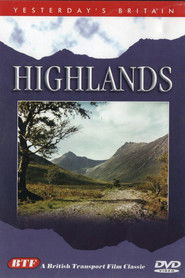Michael Orrom
DirectorWriter
-
Birthday
-
Zodiac Sign
-
Genres
0
Total Films
Also known as (female)
Place of Birth
-
Birthday
-
Zodiac Sign
-
Genres
0
Total Films
-
Also Known As (female)
-
Place of Birth
-
Birthday
-
Zodiac Sign
-
Genres
0
Total Films
Also known as (female)
Place of Birth
-
Birthday
-
Zodiac Sign
-
Genres
0
Total Films
-
Also Known As (female)
-
Place of Birth
actor
0 Works
producer
0 Works
director
15 Works
writer
2 Works
other
3 Works
A Study in Change
A BAFTA award nominated film dramatising how one firm and its employees faced the inevitable changes caused by automation and made the best of the situation.Year:
1970
A Study in Change
A BAFTA award nominated film dramatising how one firm and its employees faced the inevitable changes caused by automation and made the best of the situation.Year:
1970

Portrait of Queenie
Film profiling actress and singer, Queenie Watts as she entertains at her London pub.Year:
1964

Portrait of Queenie
Film profiling actress and singer, Queenie Watts as she entertains at her London pub.Year:
1964
A Light in Nature
A short documentary looking at the science of life itself and at the international collaboration involved in it's study.Year:
1960

Yesterday's Britain: Highlands
Three short films from the Fifties, offering an insight into day to day life amongst the beautiful scenery of the Scottish Highlands. 'Heart Is Highland' (1951) calls in on the local gamekeeper, nurse, newspaper editor and bus driver as it tours from Inverness to Kinloch Rannoch. 'Wild Highlands' (1959) discovers the wildlife populating the Ardnamurchan peninsula on the Argyll coast, and 'Highland Journey' (1957) journeys by coach and steam train from Edinburgh to the Isle of Skye.Year:
1957

Highland Journey
From Glasgow or Edinburgh, Scotland may be explored by train or long-distance coach, and this film includes a coach tour from Edinburgh to the Isle of Skye. The route taken meets the Highlands at Killin, and then goes over Rannoch Moor and through Glencoe to Ben Nevis, the entrance to the Great Glen. Here we meet the West Highland railway line, and follow it on its journey through the Bonnie Prince Charlie country to Mallaig. Returning to the Great Glen we rejoin the coach route out through the Glen Foyne and Glen Shiel to the Kyle of Lochalsh, and take the ferry over to Skye.Year:
1953

Highland Journey
From Glasgow or Edinburgh, Scotland may be explored by train or long-distance coach, and this film includes a coach tour from Edinburgh to the Isle of Skye. The route taken meets the Highlands at Killin, and then goes over Rannoch Moor and through Glencoe to Ben Nevis, the entrance to the Great Glen. Here we meet the West Highland railway line, and follow it on its journey through the Bonnie Prince Charlie country to Mallaig. Returning to the Great Glen we rejoin the coach route out through the Glen Foyne and Glen Shiel to the Kyle of Lochalsh, and take the ferry over to Skye.Year:
1953
Channel Islands
The Channel Islands have had a varied and exciting history. Jersey and Guernsey are ideal places for holidays. Jersey offers a wide variety of attractive bays for sport and relaxation; Guernsey still preserves something of an eighteenth-century atmosphere, and is a place for quieter enjoyment. It is an ideal centre for exploring the other smaller islands, and the film ends with a journey by boat to Herm.Year:
1952
Dodging the Column
The transporting of a distillation colurm, 137 feet long, 500 miles by road from Greenwich to Grangemouth in Scotland. The commentary, spoken by the rigger in charge and one of the tractor drivers, expresses the humour and resourcefulness with which these transport workers tackle their job; and the camera has captured moments of beauty as well as some amusing episodes in this journey of the longest load to travel by road in Britain.Year:
1952

No Resting Place
The brilliant British documentary filmmaker Paul Rotha made his feature-film debut with 1950's No Resting Place. Filmed on location in Ireland, the film is a lightly fictionalized study of that country's itinerant workmen. Michael Gough plays tinker Alec Kyle, whose life is thrown into turmoil when he accidentally kills a man. Kyle spends the rest of the film evading Guard Mannigan (Noel Purcell), a civil servant who relies on instinct rather than scientific deduction to get his man. Without ever trying to elicit sympathy for his characters, director Rotha manages to compellingly detail the miserable living and working conditions of Ireland's nomad artisans.Year:
1951

No Resting Place
The brilliant British documentary filmmaker Paul Rotha made his feature-film debut with 1950's No Resting Place. Filmed on location in Ireland, the film is a lightly fictionalized study of that country's itinerant workmen. Michael Gough plays tinker Alec Kyle, whose life is thrown into turmoil when he accidentally kills a man. Kyle spends the rest of the film evading Guard Mannigan (Noel Purcell), a civil servant who relies on instinct rather than scientific deduction to get his man. Without ever trying to elicit sympathy for his characters, director Rotha manages to compellingly detail the miserable living and working conditions of Ireland's nomad artisans.Year:
1951
Handkerchief Drill
A husband sneezes inconsiderately all over the place, until his wife has had enough and leaves him.Year:
1949
Mining Review
One of a series of newsreels made about miningYear:
1948
Total War in Britain
Dunkirk to D-Day in 20 minutes flat: this gripping account of Britain's war effort compels us to sit up and pay attention. A 'total war' is one encompassing civilian as well as military life. Here we witness the might of the state mobilising technology, infrastructure, agriculture, industry and above all people. A rapid-fire onslaught of images and information palpably evokes the experience of total war.Year:
1945